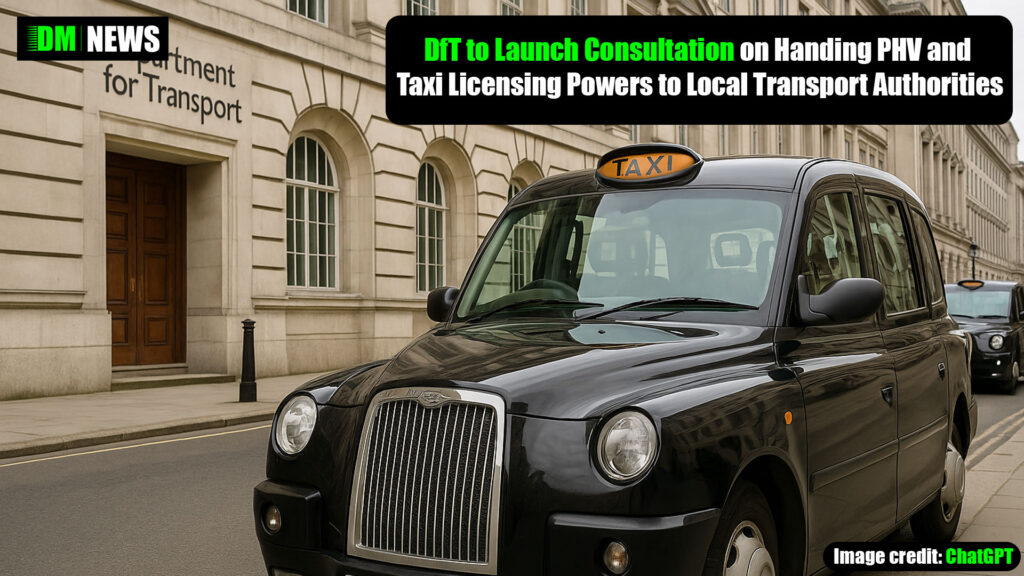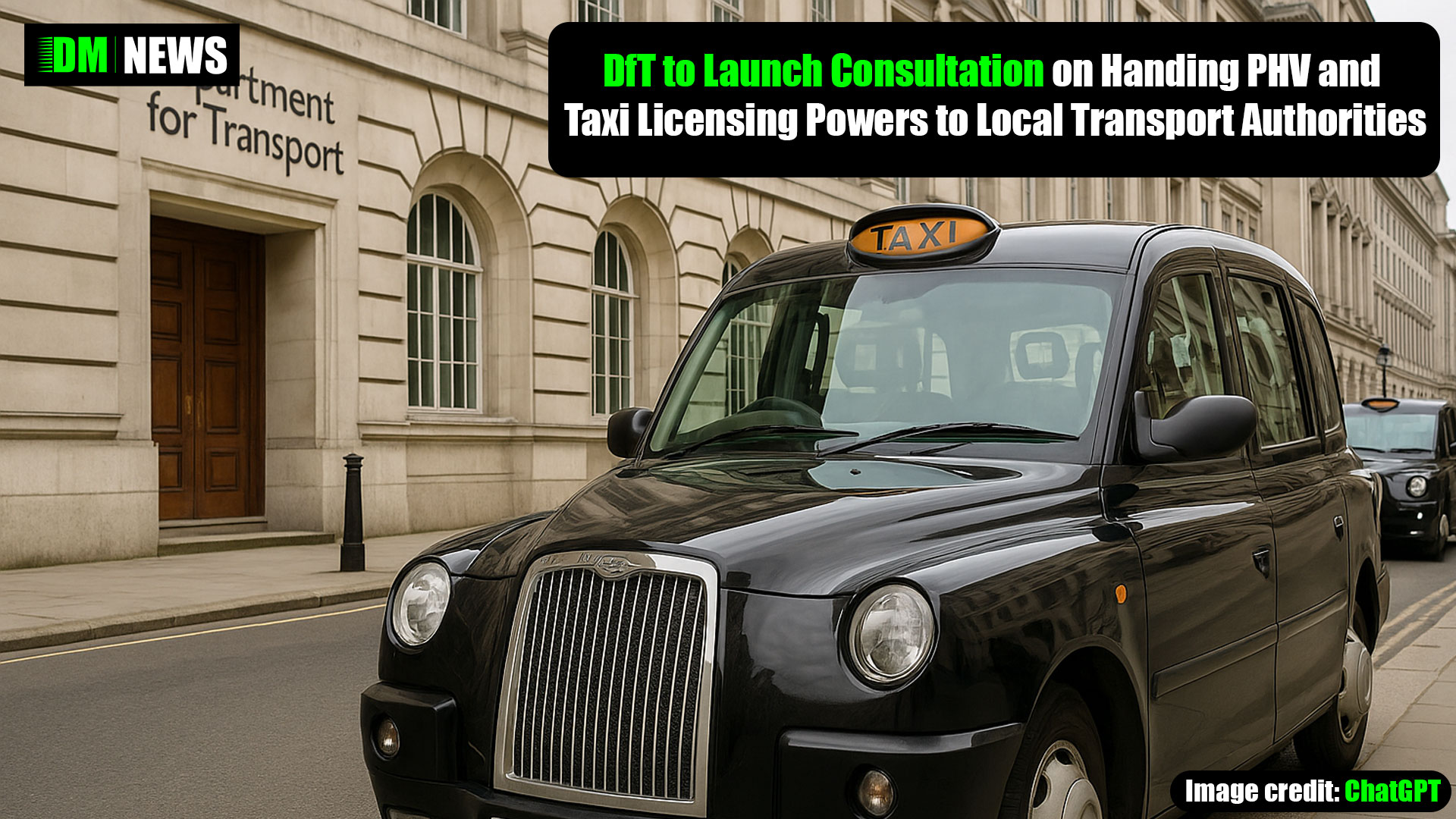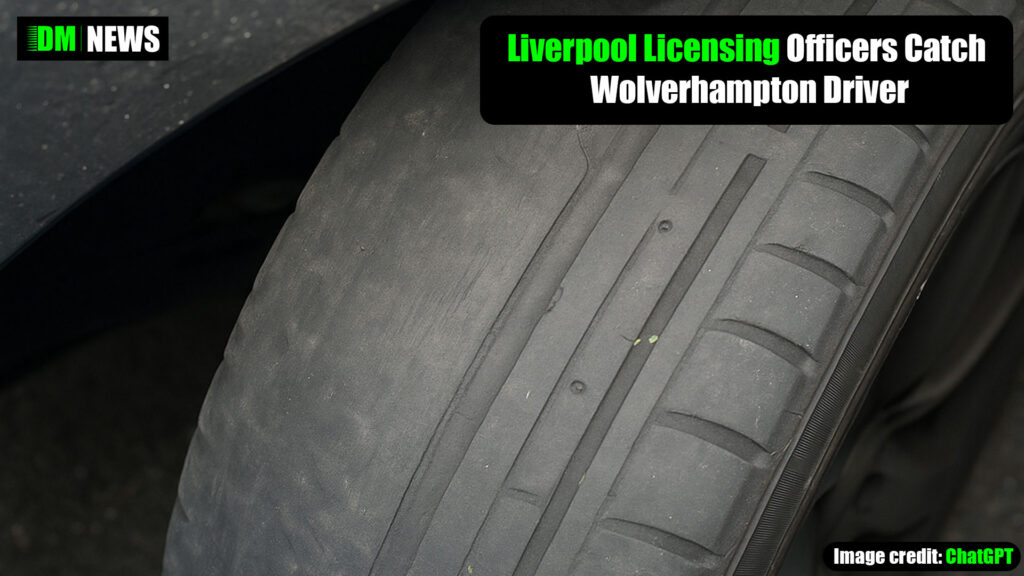The Department for Transport (DfT) has revealed plans to launch a consultation that could lead to a major overhaul of the way taxi and private hire vehicle (PHV) licensing is handled across England.

Currently, taxi and PHV licences are issued by 263 separate district and borough councils. However, under the new proposal, these responsibilities would be centralised and transferred to Local Transport Authorities (LTAs).
The move is aimed at tackling long-standing issues with cross-border hiring and inconsistent enforcement. Drivers licensed in one area can currently operate in another with little oversight, raising concerns over passenger safety, accountability, and fair competition.
DfT Minister Simon Lightwood explained the rationale behind the shift: “Administering licensing at the LTA level could lead to more consistent standards and more effective enforcement across the country. It also allows us to take advantage of economies of scale and reduce duplication.”
The proposal forms part of the government’s broader strategy to modernise the taxi and private hire industry. The consultation will gather views from local councils, industry bodies, drivers, passengers, and the public. A successful model already exists in London, where Transport for London (TfL) is responsible for licensing taxis and PHVs.
The DfT has yet to confirm a specific start date for the consultation, but it is expected to open in the coming weeks.
If implemented, the changes could dramatically reshape the industry—potentially phasing out some local authorities’ licensing roles and creating a more unified regulatory system.
What this could mean for the private hire industry
For Uber drivers and other PHV operators, this could introduce stricter standards and centralised checks, particularly around vehicle safety and driver vetting. It may also limit the practice of obtaining a licence in one authority with lax standards and working in another. However, some in the trade worry it could increase bureaucracy or reduce flexibility in certain regions.
Source: TaxiPoint
Thanks for visiting DM News! If you’ve got a question, story, or anything you’d like to say, head over to DriverMatty.com — I’d love to hear from you! And while you’re there, don’t forget to check out my other websites and social media channels.






